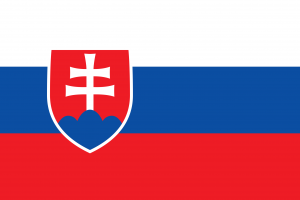Language/Slovak/Vocabulary/Idiomatic-Expressions
Hi Slovak learners! 😊
In this lesson, we will learn Slovak idiomatic expressions. Idioms are phrases that have a figurative meaning, different from the literal meaning of the words. Learning idiomatic expressions is a great way to improve your understanding of Slovak culture and language. We will illustrate each idiom with an example in a conversation. We hope you have fun learning Slovak idioms!
Idiomatic expressions
Čo sa týka...
This phrase is used to introduce a topic. It literally means "what concerns...".
Example:
- Person 1: Čo sa týka tvojho plánu na víkend? (What about your weekend plan?)
- Person 2: Uvažujem, že pôjdem na výlet s rodinou. (I am considering going on a trip with my family.)
Boliť hlava
This phrase means "to have a headache" but it is also used to describe a complicated or difficult problem. It is often used in the negative form.
Example:
- Person 1: Vieš mi pomôcť s týmto problémom? (Can you help me with this problem?)
- Person 2: Prepáč, neviem. Toto je veľmi zložitá situácia a bude to boliť hlava. (Sorry, I cannot. This is a very complicated situation and it will be difficult to solve.)
Hovoriť po právej miere
This phrase means "to speak the truth" or "to be honest".
Example:
- Person 1: Je podľa teba táto kniha dobrá? (Do you think this book is good?)
- Person 2: Hovoriac po právej miere, tá kniha nie je ani zďaleka taká dobrá, ako som očakával. (To be honest, this book is not nearly as good as I expected.)
Mať zalomené čiapočky
This phrase is used when someone is angry or upset about something. It literally means "to have bent hats".
Example:
- Person 1: Prečo sa na mňa tak hneváš? (Why are you so angry at me?)
- Person 2: To, čo si urobil, ma naozaj naštvalo. Mám zalomené čiapočky. (What you did really upset me. I am so angry.)
Dať nohu do toho
This phrase means "to make an effort" or "to put effort into something".
Example:
- Person 1: Tento projekt je veľmi náročný. (This project is very demanding.)
- Person 2: Áno, ale budeme musieť dať naozaj nohu do toho, ak chceme mať úspech. (Yes, but we will have to make a real effort if we want to succeed.)
Vidieť svetlo na konci tunela
This phrase is used to describe a situation where there is hope for a positive outcome. It literally means "to see the light at the end of the tunnel".
Example:
- Person 1: Bol som v práci non-stop a neviem, či to budem mať hotové na čas. (I have been working non-stop and I don't know if I will finish on time.)
- Person 2: Neboj sa, už vidíš svetlo na konci tunela. Zvládneš to. (Don't worry, you already see the light at the end of the tunnel. You can handle it.)
Schovať sa za záves
This phrase means "to hide behind a curtain" and is used to describe someone who avoids a situation or responsibility.
Example:
- Person 1: Prečo si neprichádza na stretnutie? (Why aren't you coming to the meeting?)
- Person 2: Mám príliš veľa práce a nemôžem prísť. (I have too much work and I cannot come.)
- Person 1: Ty sa len schovávaš za záves! (You're just hiding behind a curtain!)
Byť na koni
This phrase is used to describe a person who is in a good situation, has control or is successful. It literally means "to be on a horse".
Example:
- Person 1: Ako sa ti darí v práci? (How is your work going?)
- Person 2: Všetko ide dobre. Momentálne som na koni. (Everything is going well. I am currently in a good situation.)
Držať palce
This phrase means "to keep fingers crossed" or "to wish good luck".
Example:
- Person 1: Idem na dôležitý pohovor o zamestnanie. (I am going for an important job interview.)
- Person 2: Držím ti palce! (I am keeping my fingers crossed for you!)
Conclusion
We hope you enjoyed learning Slovak idiomatic expressions! To improve your Slovak Vocabulary, you can also use the Polyglot Club website. Find native speakers and ask them any questions! Don't forget to practice these expressions in context to improve your understanding and fluency.
➡ If you have any questions, please ask them in the comments section below.
➡ Feel free to edit this wiki page if you think it can be improved. 😎
Related Lessons
- Shapes
- Months of the Year
- How to Say Hello and Greetings
- Time Periods
- Greetings
- Maps
- Food
- Clothes
- Election
Sources
- Slovak Vocabulary - Idiomatic expressions
- Slovak idioms
- 20 Love Words And Phrases In Slovak - Ling App

